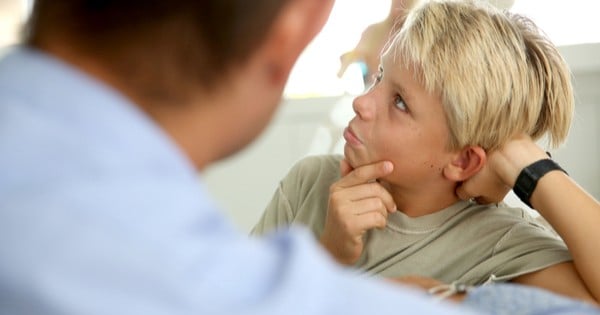
What is learning through play?
Children are naturally curious about the world around them. They experience and come to understand the world and their place in it through play. Creating opportunities for children to explore, experiment, question and discover new concepts about the world in playful ways is central to their learning, development and wellbeing.
Learning through play doesn’t need to happen in formal settings like pre-school for children to get the benefits. When children are young they play and learn in the home, making parents and caregivers their first teachers. Families can support children’s learning and development by creating opportunities for play in the home.
Play can happen both inside and outdoors. You don’t need expensive toys or equipment. Learning through play can build on everyday activities in the home and make use of common household items. Cardboard rolls and boxes, plastic cups and buckets, wooden spoons, food packaging, old clothes and pots and pans are just some of the items you can use. Feel free to get creative!
Ideas for learning through play in the home
Babies |
Toddlers |
Preschoolers |
| Reading, talking, telling stories and singing to your baby will help them learn about language, words, and sounds. | Making collages with paper, scissors, and glue can help your toddler develop fine motor skills and use their creativity. You can use scraps of paper or fabric, dried pasta or cereal, tin foil, pipe-cleaners, ice-cream sticks, buttons or even natural items like feathers, sand and leaves. | Playing games like dress-up, make-believe, hide and seek or I Spy engages your child’s imagination and creativity. |
| Have fun making funny noises, squealing and babbling together (an early form of talk). | Building blanket forts or cubby houses in the home will encourage your toddler to use their imagination and solve problems. You can make a blanket fort by hanging a blanket over a table. Large cardboard boxes can be used for cubbyhouses, with holes cut out for windows and doors. You can paint and decorate the cubbyhouse together as a fun activity. | Playing board games and sorting puzzles will help children learn to think critically and solve problems. |
| Tummy time strengthens your baby’s head, neck and upper body muscles. This will help them develop movement control. Try to do supervised tummy time every day. | Sports equipment like balls, rope and hoops encourage throwing, catching, jumping, running and stretching. This develops your toddler’s gross motor skills. | Playing board games and sorting puzzles will help children learn to think critically and solve problems. |
| Toys and objects in different shapes, textures, colours and sizes can help your baby reach and grasp. Soft blocks, balls, stuffed toys and plastic rings are good options. | Listening to family-friendly music and radio is a fun way of increasing language and communication skills. Music and rhyme can increase pattern recognition and dancing is a creative way to help your child express feelings and ideas. This can help foster their social and emotional development. Ideas for learning through play in the home | Ask your child to ‘read’ you a story. |
| Listening to music can help your baby’s hearing development. Try listening to nursery rhymes together or make your own music with items around the home. Plastic bottles filled with rice make fun shakers and you can use wooden spoons and pots and pans to make drums. | Camp in the back yard, sit around a fire pit and tell stories or do shadow plays. Children love to get wet, dirty and tired, and learn new things. | Doing simple household tasks together like cooking, gardening, hanging up washing, feeding your pet and tidying up messes can teach children about teamwork and build their confidence. |
| Sitting your baby near sturdy furniture can encourage them to pull themselves up and stand. You can encourage crawling by making tunnels out of cardboard boxes or chairs. | Building obstacle courses in the house or yard supports both fine and gross motor skills. Make obstacles using empty cardboard boxes, jump rope or cord, small ladders, hoops, cones and more to encourage movements like running, jumping, stepping, climbing, and hopping. This helps overall physical fitness and coordination. | |
| Reaching out to family and friends by video or phone call can foster social, communication and language skills. This sort of playful interaction can teach children how to get along with adults and other children. | ||
| Look up and engage in activities you can do away from the home such as playgroups, libraries, or what your local council has to offer. |
Download a printable version of the above activities – Learning through play (PDF, 1.1MB)
Online resources
The online resources below offer further activities you and your child can try at home.
Babies
| Resource | Description |
| Love, talk, sing, read, play | This app contains information for every family to help their child/ren learn and develop. |
|
Deadly Tots
Aboriginal and Torres Strait Islander children specific. |
Deadly Tots App contains information for every Aboriginal Family to help their Bub learn and grow. |
Toddlers
| Resource | Description |
| Stories Podcast | A free children’s podcast which retells fairy tales and classic stories. |
| Busy Toddler | This website offers a range of play activities for children including ideas for bath-time art and messy play. |
| Play activities range from sensory to indoor and outdoor play. | |
| Funbrain Jr Stories | This resource provides families with online stories that can be read with children. |
| The website also offers a range of online games, printable activities and apps. |
Preschoolers
| Resource | Description |
|---|---|
|
Little J & Big Cuz
Aboriginal and Torres Strait Islander children specific. This is a school readiness resource. |
Animated videos that combine Aboriginal worldviews and knowledge with the Early Years Learning Framework. |
| Raising Children Network | Play-based/practical activities presented through videos or instructions, with some activities aimed at early literacy and numeracy.
Outdoor learning activities that support the development of fine and gross motor development and general wellbeing |
|
Helping your child with literacy and numeracy at home
This is a school readiness resource. |
A resource created by the NSW Department of Education with practical suggestions for literacy and numeracy home learning.
Activities can be flexibly adapted to resources available within the home |
| Go Valley Kids: Virtual Tours | Over 45 virtual tours of museums, zoos, national parks, and other wonders of the world for your child to explore in the comfort of their home. |
| Kinderling (radio available) | Family-friendly kids’ radio for children and their grown-ups
Has a daily schedule and weekly educational themes A book is read to children daily The website features fun activities to do at home with the family Includes a kids’ podcast that celebrates the wonderful languages and cultures found in Australia. All material can be accessed via radio or online through an App |
| Brisbane Kids: World zoos that offer virtual tours | A list of numerous zoo and aquarium tours from around the world. |
| Twinkl – Dual Language
Suitable for children from culturally and linguistically diverse communities.
|
Parents can support their child in learning English as an Additional Language through a range of downloadable resources.
Resources are written in over 22 different languages Topics covered include literacy, verbal and non-verbal communication and socio-emotional development. Full content access with log in and free code: AUSTRCODE All resources will be free for a period of one month with a possible extension. The code is: CVDTWINKLHELPS |
| Lone Pine Koala Sanctuary | Watch and learn about native Australian animals including koalas, dingos, reptiles, platypus and birds. |
| Go Noodle | A website full of movement and mindfulness videos that will get kids up and moving to fun, engaging content, and games. |
All ages
| Resource | Description |
|---|---|
| Let’s Read | Reading tips for children. |
| Twinkl – English as an Additional Language
Suitable for children from culturally and linguistically diverse communities. This is a school readiness resource. |
A collection of downloadable English as an Additional Language teaching and learning resources to support children learning English as an Additional Language.
Topics covered include literacy, numeracy, verbal and non-verbal communication and socio-emotional and physical development. Full content access with log in and free code: AUSTRCODE. All resources will be free for a period of one month with a possible extension. The code is: CVDTWINKLHELPS |
|
All Play Learn
Suitable for children with a disability. |
Provides learning resources and information for parents and children with a disability in long day care and kindergarten. |
|
ABC Kids
ABC Kids Listen Make & Do Little Yarns for Little People
|
Numerous resources and activities available
ABC Kids Listen podcasts such as Imagine This, with a science focus for children 4 years and older. Make & Do provides craft activities with instructions for parents. A lot of the material can be sourced around the home. Little Yarns for Little People is a podcast for children celebrating the languages and cultures of Aboriginal and Torres Strait Islander peoples. |
| Healthy Kids | A website full of kid-friendly recipes, ideas for physical activities and practical ways to improve nutrition. |
| Playgroup NSW | A website that lists play activities including sensory play, baby play, arts & crafts, outdoor play and DUPLO activities. |
—
This post was previously published on NSW Department of Education with a Creative Commons License.
***
From The Good Men Project on Medium
 What Does Being in Love and Loving Someone Really Mean? What Does Being in Love and Loving Someone Really Mean? |
 My 9-Year-Old Accidentally Explained Why His Mom Divorced Me My 9-Year-Old Accidentally Explained Why His Mom Divorced Me |
 The One Thing Men Want More Than Sex The One Thing Men Want More Than Sex |
 The Internal Struggle Men Battle in Silence The Internal Struggle Men Battle in Silence |
Join The Good Men Project as a Premium Member today.
All Premium Members get to view The Good Men Project with NO ADS.
A $50 annual membership gives you an all access pass. You can be a part of every call, group, class and community.
A $25 annual membership gives you access to one class, one Social Interest group and our online communities.
A $12 annual membership gives you access to our Friday calls with the publisher, our online community.
Register New Account
Log in if you wish to renew an existing subscription.
Need more info? A complete list of benefits is here.
—
Photo credit: iStock
The post Educational Resources To Use at Home appeared first on The Good Men Project.
